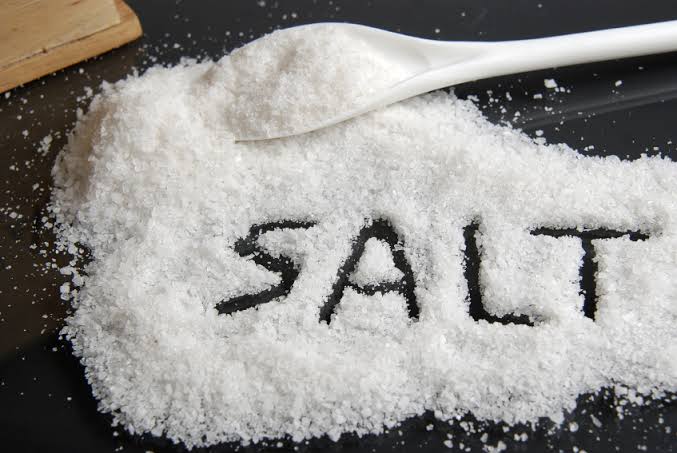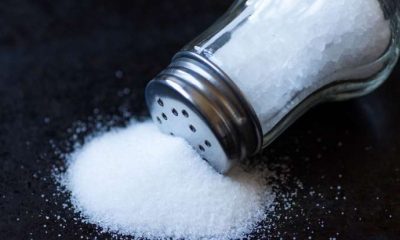Health
High Blood Pressure And Other Signs You Are Consuming Too Much Salt

Salt is a mineral composed primarily of sodium chloride, a chemical compound belonging to the larger class of salts. Salt in the form of a natural crystalline mineral is known as rock salt or halite.
Salt is used for flavoring and as a preservative. It is also used in the production of tie and dye, pottery, soap, and chlorine. It is mostly used in the chemical industry. The body needs salt for fluid balance and nerve function, but too much salt can be dangerous to the body.
READ ALSO: Foods And Other Factors That Weaken Immune System
It contains 40% sodium and 60% chlorine. Too much sodium can cause high blood pressure, kidney stones, and cardiovascular disease. Too little sodium can cause dizziness and hyponatremia.
According to the World Health Organization, your daily intake should not exceed 1.5g, or over half a teaspoon. When you take more than the recommended amount, it can be dangerous for your health. Here are five signs you’re consuming too much salt:
High blood pressure
Excessive consumption can raise your blood pressure. High blood pressure is caused by the increased amount of blood pushing against the blood vessel walls. Sodium is predominantly found in human blood, where it attracts water. As a result, if you consume too much sodium, your bloodstream will absorb more water.
Bloating
Consuming too much can make you feel bloated because sodium attracts water. When you consume too much salt, you’re likely to experience fluid retention and swelling in strange places, e.g., fingers or toes.
Feeling thirsty constantly
Studies show that foods with high sodium content can affect the body’s fluid balance. When you consume too much of this flavouring, you’re likely to feel thirsty most of the time. Drinking enough water is the best method to correct this. Your body continues to indicate that it requires more water in order to restore salt balance. It is also suggested that you avoid processed foods and instead opt for vegetables and fresh fruits.
Mild headaches
When you consume too much salt, you’re likely to experience mild and constant headaches. Salty foods can trigger migraines and also cause blood vessels in the brain to expand, which can lead to painful and frequent headaches.
Frequent urination
One of the most obvious signs of excessive consumption is frequent urination. Sometimes, taking too much salt might not be the cause of your frequent urination. In order to stop this, it’s better to cut your intake and also drink plenty of fluids in order to get rid of the excess salt.
Send Us A Press Statement Advertise With Us Contact Us
And For More Nigerian News Visit GWG.NG




